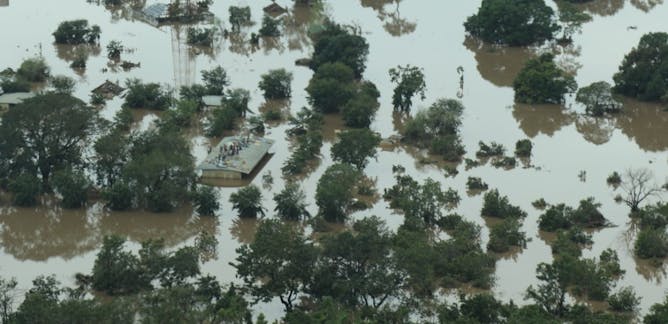|
Scientists recently unearthed the skull of humankind’s oldest ancestor, living 3.8 million years ago. The hominin, known as Australopithecus anamensis, is believed to be the direct ancestor of the “Lucy” species Australopithecus afarensis. But the discovery has important implications for our understanding of human evolution, suggesting crucial previous theories have actually been wrong. Hester Hanegraef talks us through the findings.
Zimbabwe’s economic and political crisis shows no signs of abating. Inflation is out of control; crippling power cuts and water shortages are a daily reality. The country’s main opposition power has put its faith in a wave of public mass demonstrations to try and depose President Emmerson Mnangagwa. But Tapiwa Chagonda argues that such an approach is doomed to fail, and sets out why forming a second government of national unity might be the best option for the flailing nation.
|

MRD skull.
Dale Omori, courtesy of the Cleveland Museum of Natural History
Hester Hanegraef, Natural History Museum
The hominin known as Lucy may not be the direct ancestor of humans.
|

Many Zimbabweans have turned to hawking to keep the wolf from the door as the economic crisis in the country deepens.
EFE-EPA
Tapiwa Chagonda, University of Johannesburg
It's time for a new approach as it becomes increasingly clear that protests won't topple the Zanu-PF government.
|
Politics + Society
|

Carol Anne Goodwin Jones, University of Birmingham
Police tactics in Hong Kong have not helped the cycle of protest, repression and further protest.
| |

Tangguh Chairil, Binus University
Indonesia is set to issue its first cyber security bill. It's badly needed, but in its current form the legislation also create risks of abuses of power and violations of human rights.
|

Abdulaziz Alghashian, University of Essex
Saudi Arabia and Israeli in balancing act after strikes on Iran-backed militias.
| |

Jackline Wahba, University of Southampton
Jordan has a huge number of Syrian refugees and since 2016 it has let them legally enter the workforce.
|
|
|
Environment + Energy
|

Andrea Ficchì, University of Reading
Tropical cyclones Idai and Kenneth have shown how important it is to integrate local information and resources with global scale forecasts and support.
| |

Julien Le Roy, Western University
Pesticides have become almost essential for agriculture, but their misuse can have negative effects on crops too.
|
|
|